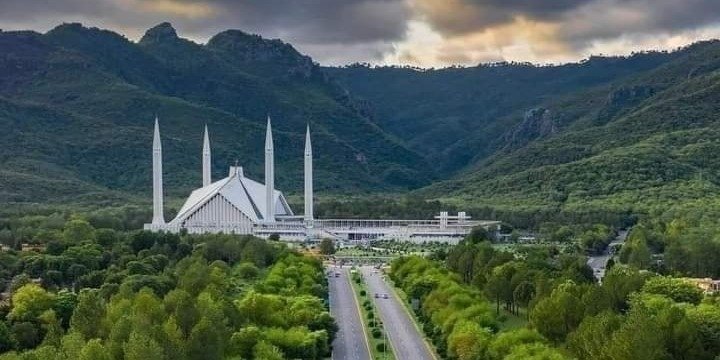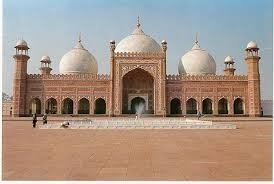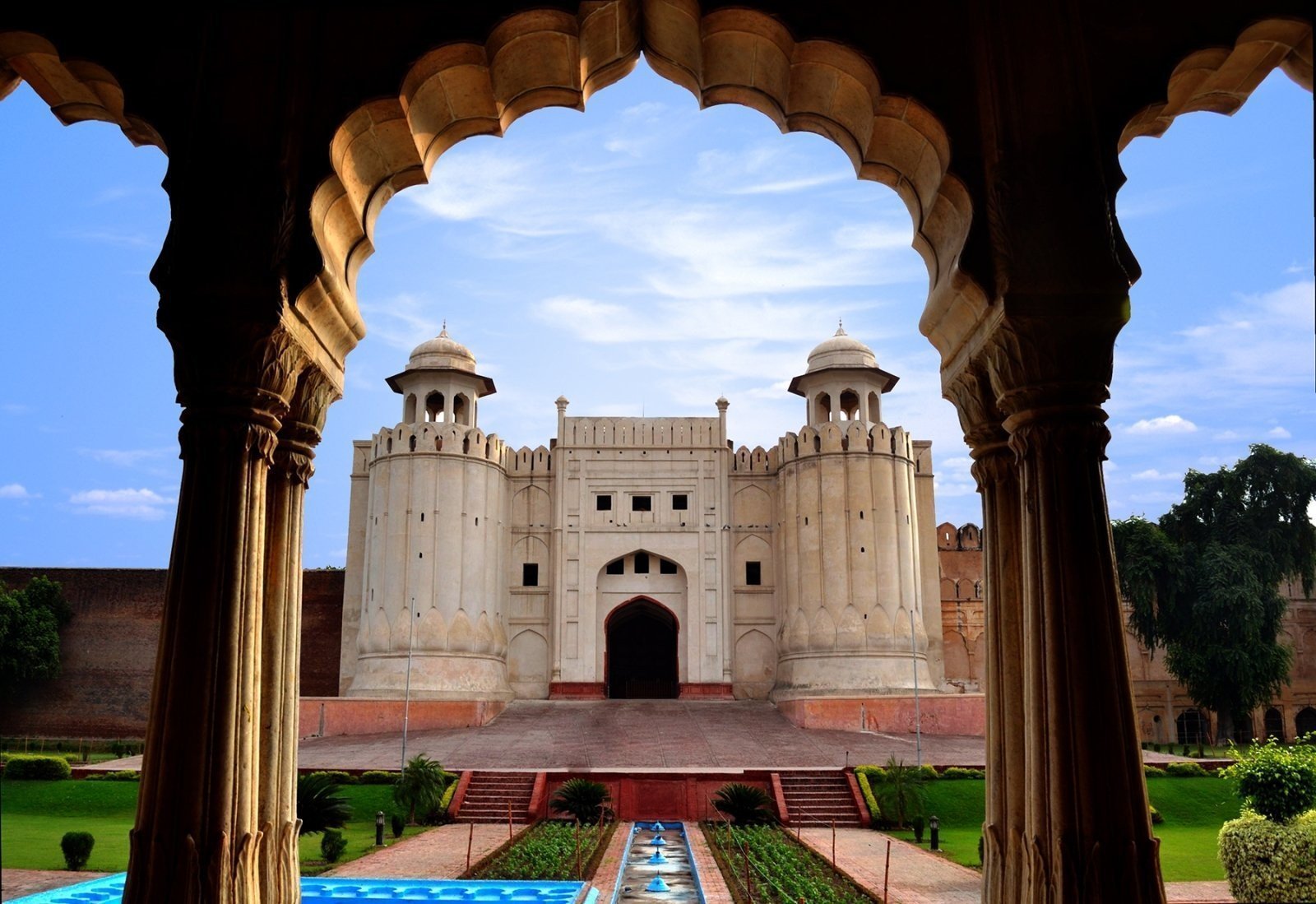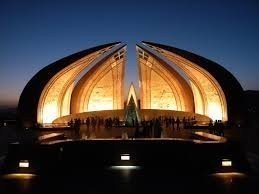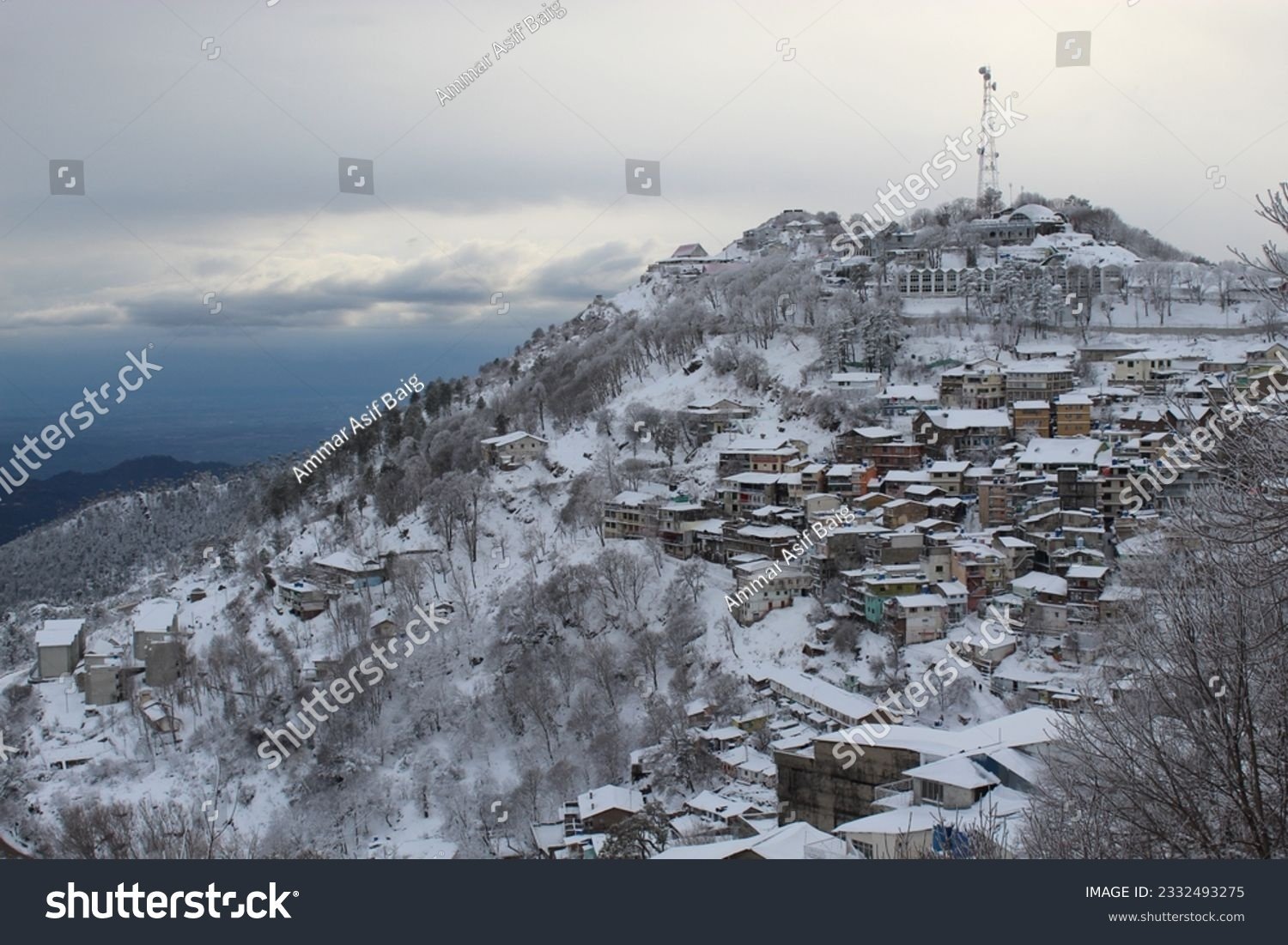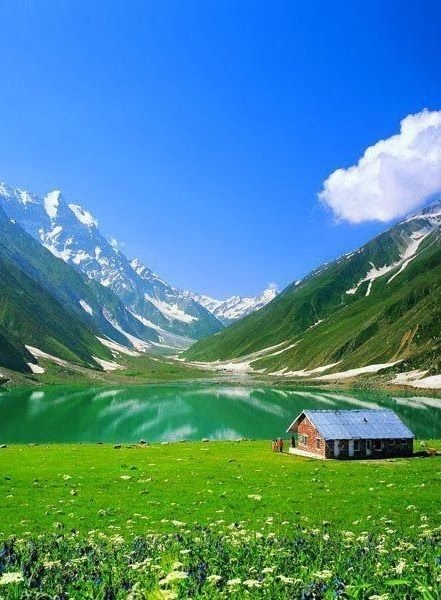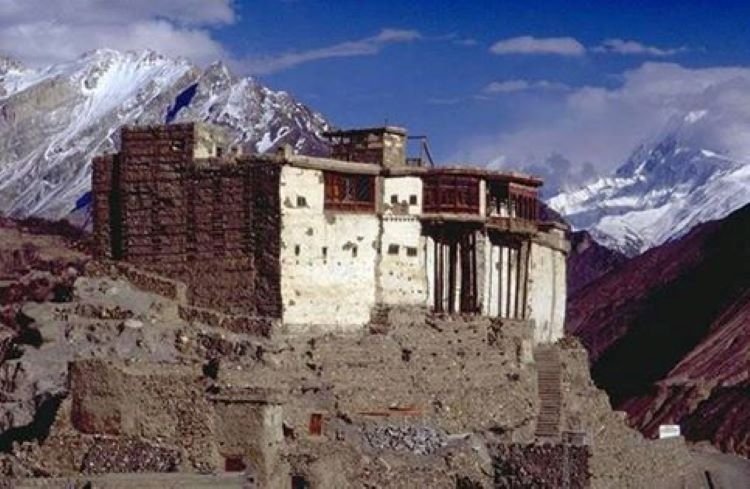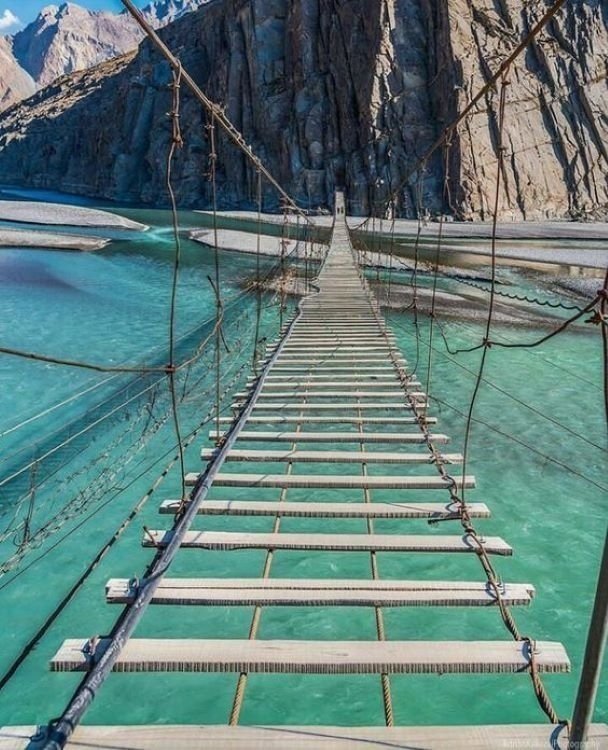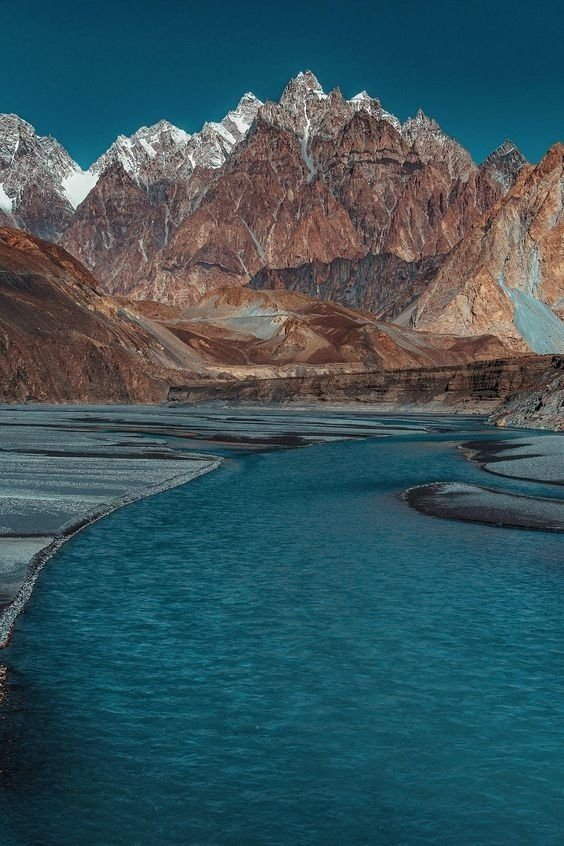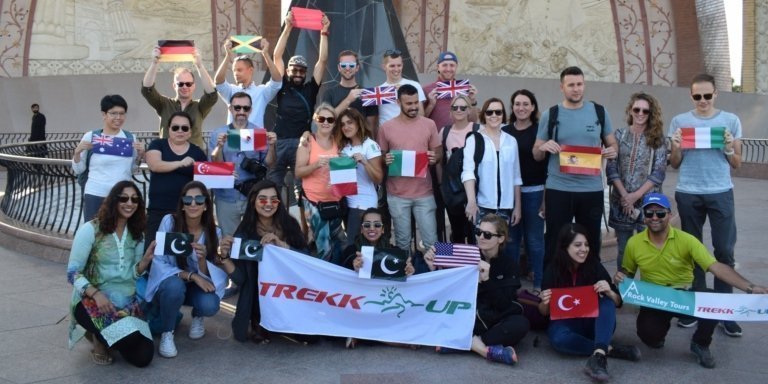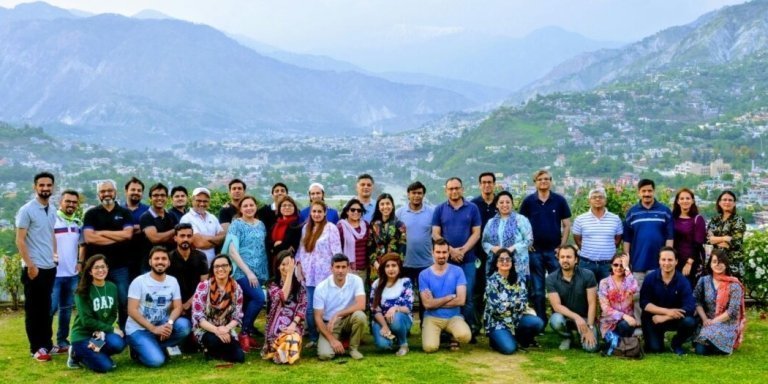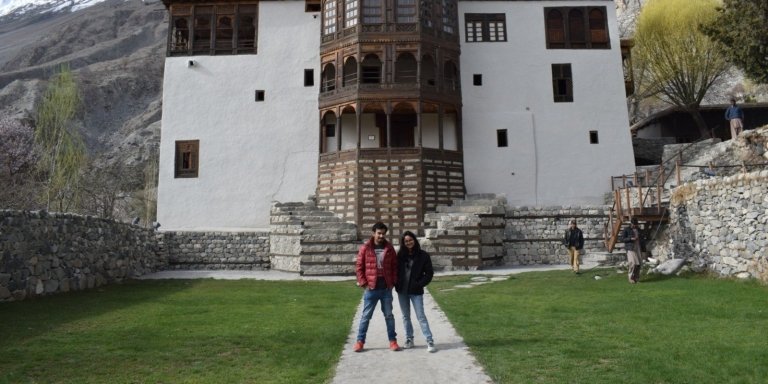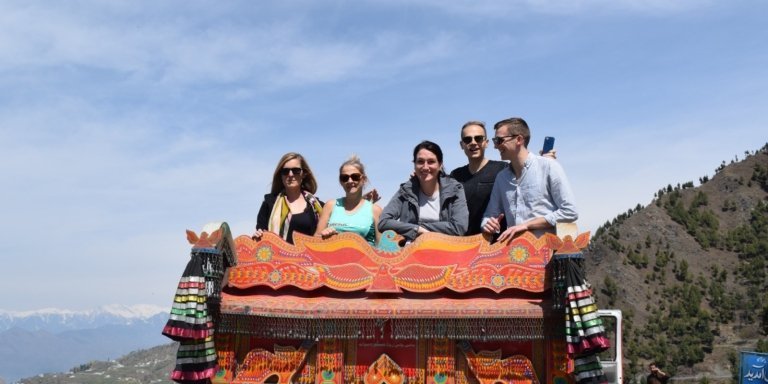Pakistan Sikh Yatra - On this 9 day experience, we will take you thru the life history of Guru Nanak Dev Ji from Janam (Birth) at Nankana sahib till the resting at Darbar Sahib Kartarpur. Also to Read more ➤
Pakistan Expedition
-
Duration - 15 days
-
Guide optionsEnglish
-
Cancellation PolicyStandard
Overview
Pakistan Expedition - This 15-day expedition is a brand-new trip through an ancient land. Beginning in Pakistan’s capital of Islamabad, the expedition takes you north to the stunning and rarely touristed Hunza Valley region. Here you’ll find nature unleashed:
Highlights
- Islamabad - Faisal Mosque Islamabad -
- Taxila Museum & archeological sites
- Ghulmet - Rakaposhi View Point
- Gulmit - Ancient house visit Hunza Valley - Ondra Polygah hike Gulmit
- Murree Mall Road Pindi Point
- Women-run carpet weaving center
- Hunza Valley - Borith Lake
- Passu Glacier hike Hunza Valley - Village tour & optional hike Karimabad - Karimabad -Baltit Altit
- Hussaini Hanging Bridge -
- Traditional music performance Shimshal
- Karimabad - Market tour Hunza Valley - Ganish Village walking tour Hunza Valley - Attabad Lake
- Gilgit - Local markets Gilgit - Kargah Buddha Gilgit - China Yadgar (Chinese cemetery)
- Lahore - Lahore Museum Lahore - Bagh-e-Jinnah (Lawrence Garden) Lahore - Anarkali & Liberty Market
- Lahore - Tomb of Jahangir Lahore - Shalimar Gardens Lahore - Wagah Border ceremony
- Lahore - Shahi Hammam Lahore - Tomb of Allama Iqbal Lahore - Badshahi Mosque
- Lahore - Wazir Khan Mosque Lahore - Akbari Mandi & Azam Cloth Market
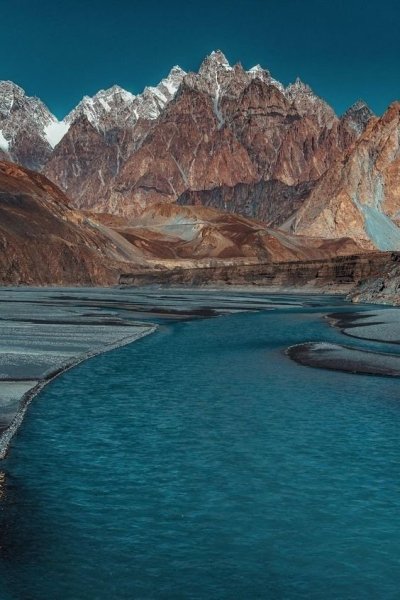
Description
Pakistan Expedition
This 15-day expedition is a brand-new trip through an ancient land. Beginning in Pakistan’s capital of Islamabad, the expedition takes you north to the stunning and rarely touristed Hunza Valley region. Here you’ll find nature unleashed: imagine imposing jagged peaks, alpine lakes and glaciers creeping into the valleys. Hike between ancient fortifications scattered among rural villages and learn about the modern innovations that help the local people prosper. Finish in Lahore, a city that not only stood strong through the rise and fall of empires but also preserved the culture that makes Pakistan such a mesmerising, all-consuming country.
This adventure involves hiking and spending time at altitude and is recommended for those with a good level of fitness. Please bring comfortable footwear suitable for hiking. Part of travelling with Intrepid means respecting local cultures and sensibilities. That way you get the most out of your interactions with local people and environments. Pakistan is a conservative country and travellers of all genders are advised to cover up when in public. This trip includes one or more overnight stays at 3200 metres (11500 ft) where there is a genuine risk of being affected by Acute Mountain Sickness (AMS). If left untreated AMS can be life-threatening. While the vast majority will only feel discomfort, it is not uncommon for a small number of people to need extra care which will be provided by our leaders and local staff. All our trips that spend time at high altitudes follow our standard altitude safety measures. A number of medical conditions and medications can also reduce your body's ability to acclimatise, and thus will affect your performance at altitude and make you more susceptible to AMS. If you are worried about any pre-existing condition (e.g. heart problems), or unsure of your physical ability, you must seek medical advice prior to booking. You may also wish to discuss medication such as Diamox that may help aid acclimatisation. At night the temperature can really drop, so bring your warm clothes. Even in the warmer months, the temperature can be low in the mountains. This trip includes extended time spent travelling in a private vehicle with your group. Extra space can be tight, and conditions may feel a little cramped. It’s all part of the adventure and a great way to get to know your fellow travellers. Please read the itinerary carefully for travel time estimates you are prepared for the realities of very long travel days. The weather can be unpredictable in the mountains and a significant number of flights to/from Islamabad and Gilgit are delayed or cancelled due to weather conditions. If your flight is cancelled we will endeavour to get your group on the next available flight and follow our contingency plans. This may involve changes to the itinerary which will be communicated by your group leader.
What's included
- Inclusions:
- Air-conditioned vehicle
- All Fees and Taxes
- Room on twin sharing for 14 nights
- Entry Fee to Museum
- Entry Fee to all Sites
- English Speaking Guide
- Bottled Water
- Fuel and Toll Taxes
- Food (14 B/fast, 10 Lunch 10 Dinners)
- Exclusions:
- Tips to Guide and Drivers and
- International and local flights
- extra night before or end of itinerary
- Foods not mentioned in the itinerary
- telephone calls in Hotels
- extras in Hotels
Itinerary
- Visited Places:
- Islamabad
- Taxila
- Naran Valley
- Gilgit-Baltistan
- Hunza Valley
- Passu
- Murree
- Lahore City
Day 1 Islamabad
Welcome to Islamabad, Pakistan’s capital city. Translating as ‘City of Islam’, Islamabad was built in the 1960s to replace Karachi as the nation’s capital, though there’s evidence that humans have lived in the area for many thousands of years. Your expedition begins with a welcome meeting at 6 pm but if you arrive earlier there are several sights worth checking out, including the Shah Allah Dita caves, Golra Railway Station, and the Lok Virsa Museum – dedicated to the preservation, documentation promotion of Pakistan’s cultural heritage. You may also wish to visit the historic Saidpur village, only a 20-minute drive away, which is over 400 years old and sits at the foothills of the nearby Margallas. The village is home to an old Hindu temple, a reminder of the different religions and cultures that once called this region home. After your welcome meeting, get to know your group and local leader over an optional dinner at your hotel.
Day 2 Islamabad - Taxila - Islamabad
Make the most of the opportunity to explore Islamabad with your fellow travellers. Your local leader will speak with you about the history of both Islamabad and Pakistan and be able to answer any questions about this oft-misunderstood destination. There’ll be a chance to shop for local clothes, so perhaps take the opportunity to buy a shalwar kameez – the traditional dress of loose-fitting trousers and a long shirt. Visit Faisal Mosque, which was the largest mosque in the world upon its completion in 1986 and is said to hold 10,000 worshippers, then head to the ancient site of Taxila. These World Heritage-listed ruins are evidence of over 500 years of cultural evolution influenced by Persia, Greece, and the spread of Buddhism. Enjoy a group meal in the evening at Monal, perhaps Islamabad’s most famous restaurant, which is nestled in the hills and has stunning views of the city below.
Day 3 Islamabat - Gilgit - Passu (2500m)
Fly this morning from Islamabad to Gilgit, then travel north to Passu, a small town surrounded by mountains and glaciers. It sits by the famous Karakoram Highway, which is also known as the China-Pakistan Friendship Highway as it connects the two countries. This is an achingly beautiful part of the world and there’ll be several opportunities to stop and take in views of many 7000m peaks, including Rakaposhi. We will stay in Passu for the next 3 nights and use it as our base for exploring the region.
Day 4 Hunza Valley (2500m)
Spend the day soaking up the atmosphere in Gulmit. Take a walk around the remote village and visit a carpet-weaving centre run by the local women. Visit an old house. You’ll also trek out to the ruins of Ondra Fort. The fort sits atop a rocky outcrop above Gulmit and would’ve commanded views of several strategically important passes in the area. It’s believed to have been built in the 16th century by a ruler named Qutlug Baig and, as if the historic ruins weren’t enough, there are phenomenal views of both the valley and the surrounding peaks. Return to our accommodation in Passu for the night.
Day 5 Hunza Valley (2900m)
Visit the Hussaini Hanging Bridge, described by some as the most dangerous bridge in the world. Though the bridge’ s condition is questionable its location is enviable, suspended above Hunza river and surrounded by jagged mountains. Walk to Borith lake, which sits at an elevation of approximately 2,600 metres, and out to the impressive Passu Glacier. There’ll be plenty of time to relax and you’ll also see the photogenic Tupopdan (6,106 metres), which is known as Passu Cones or Passu Cathedral. Sample Passu’s famous apricot cake and yak burgers. In the evening we will give you a chance to get immersed in the melodious tunes of the region. A local band will play their local instruments, sing songs with you and show you some of their dance moves
Day 6 Shimshal (3100m)
Travel by 4WD to the remote town of Shimshal, which was inaccessible by road up until 2003. The road took 18 years to build and was constructed by the local community, who previously had to walk for several days to reach other parts of Hunza. Shimshal is so remote that state prisoners from Hunza were once exiled here as punishment. The locals are resilient and extremely hardworking people. A number of notable Pakistani mountaineers grew up here, which isn’t surprising given the rugged, mountainous terrain. The Shimshali are to Pakistan what the Sherpa are to Nepal, and perhaps the most famous Shimshali are Samina and Mirza Ali Baig, a brother- sister climbing duo. Samina is the first and only Pakistani woman to climb Everest (at the age of 21) and the Seven Summits. She also summited K2 in 2022.
Day 7 Shimshal (3100m)
Spend the day exploring Shimshal and learn about the challenges that come with living in such an inhospitable environment. Meet the local families and hear their stories and struggles and take a hike for expansive views of the surrounding area. Almost every house in Shimshal is powered by solar electricity, as is the local school. Enjoy the mountainous surrounds, take some time to relax and acclimatise to the altitude and know that you’re experiencing a destination that few will ever get a chance to visit. Lace up those hiking boots and spend the day exploring Shimshal’s beautiful walking tracks. Remember, the locals once had to walk for days to get to the next town on paths that even yaks could not pass. We will be hiking to a view point to get an aerial view of the valley.
Day 8 Attabad Lake - Ganish Village - Karimabad (2500m)
Say farewell to the locals before returning to Passu by 4WD, a journey of approximately 3-4 hours. We will continue driving towards Karimabad from Passu in our private van. On the way we will make a stopover at Attabad lake and Ganish village.There’s a sad story lurking below Lake Attabad’s shimmering surface. The lake was formed in 2010 after a massive landslide that killed 20 people and displaced many thousands. The landslide essentially dammed the Hunza River for five months, creating a lake that measures some 21 kilometres across. Thankfully the dam held and the lake is now a popular tourist destination renowned for its insanely blue water. See it for yourself then explore Ganish, an ancient Silk Road settlement that received a cultural conservation award from UNESCO. In the evening we can visit the Karimabad market for some shopping. Karimabad is the commercial hub and capital of the Hunza region.
Day 9 Karimabad (2500m)
Karimabad is the capital of the Hunza District, a town known for its locally made handicrafts, carpets, and, of course, its next-level views of the surrounding mountains. Today you’ll walk to Baltit and Altit forts, which have stood in the region for over 700 years and are a testament to the valley’s past strategic importance. These towns were crucial for controlling the ancient Asia trade routes and Baltit Fort holds a particularly commanding position above the village. These well-maintained forts were restored by the Aga Khan Foundation, which has also been working on several projects to empower local women’s groups. You’ll have lunch at a cafe run by local women. At sunset, drive up to Duiker for an unforgettable view of the surrounding mountains including – on a clear day – Rakaposhi, Ultar, the Bublimotin, and Spantik.
Day 10 Gilgit (1500m)
Drive to Gilgit today after breakfast. Enjoy some lunch on arrival before exploring this fascinating town including the Chinese cemetary that commemorates workers who perished during the construction of the Karakorum Highway, the 7th century Kargah Buddha and the Gilgit markets. Overnight in Gilgit tonight before our flight tomorrow.
Day 11 Islamabad - Lahore
Depart Gilgit for a flight back to Islamabad. From here, the group will drive to Lahore, Pakistan’s second-largest city and the capital of the Punjab region. It is a wealthy city known for being relatively cosmopolitan with a focus on education and the arts. On the way, you’ll stop at Katas Raj temples, a stunning complex of Hindu temples located in the Chakwal district.
Day 12 Lahore
Today your local leader will take you to the Lahore Museum, which was founded in 1865. The museum is considered one of Pakistan’s finest and was featured in Rudyard Kipling’s novel ‘Kim’. Kipling’s father, John, was actually one of the first curators of the museum. You’ll have an opportunity to explore the Lawrence Gardens, now known as Bagh-e-Jinnah. These large gardens are a popular relaxation spot, so take some time to chill out and enjoy the peaceful surroundings. You’ll also get some time explore the hustling and bustling Anarkali and Liberty markets for some shopping on this day.
Day 13 Lahore
Start your day with a visit the Tomb of Jahangir, a 17th-century mausoleum built for the Mughal Emperor Jahangir, who ruled from 1605–27. Continue to the splendid Shalimar Gardens, built in the 17th century by the Emperor Shah Jahan and feature waterfalls, ponds, and several garden pavilions. Wander through the complex, designed to be a natural utopia on earth, then travel to the Wagah border of Pakistan and India to witness the flag-lowering ceremony. This impressive spectacle attracts both international tourists and locals and features both sets of soldiers performing some seriously macho choreography. The ceremony ends with both flags being lowered simultaneously and a handshake between the soldiers.
Day 14 Lahore
Your last full day in Lahore will be spent visiting some of the city’s most famous places. First up is the Walled City of Lahore, which was constructed around the year 1000. Within its walls, you’ll find the Delhi Gate, the World Heritage-listed Lahore Fort, the huge Badshahi Mosque, and the ridiculously beautiful Wazir Khan Mosque. The interior is decorated with intricate mosaics and frescoes and the mosque houses historic shops, tombs of Sufi saints, and the Shahi Hammam baths. You’ll also visit the tomb of Allama Iqbal, a poet and philosopher who is widely regarded as having inspired the Pakistan Movement (he also had a fantastic moustache). You’ll have time to explore the markets within the Walled City too. Take a walk through the Akbari Mandi, dedicated to grains and spices, or the bustling fish market by Delhi Gate. There is also the Azam Cloth Market, one of Asia’s largest, which houses some 16,000 shops. As the cultural capital of Pakistan, Lahore isn’t short on delicious cuisine to try. Get together for a final group dinner on Lahore’s famous (and mouth-watering) Food Street.
Day 15 Lahore
Your Pakistan expedition comes to an end today. You are free to leave the accommodation at any time after breakfast, but please ensure you check out by 12 pm.
Frequently Asked Questions
How much time does the Pakistan Expedition take?
Pakistan Expedition duration is 15 days.
Book Pakistan Expedition now just with Booking Deposit on TripsPointHow many days in advance I must book Pakistan Expedition?
You can book Pakistan Expedition at least in 10 days. Check availability calendar in "Book Now" form to see currently available dates.
Book Pakistan Expedition now just with Booking Deposit on TripsPointtraveler reviews
You may also like
Detail5 Days Lahore, Islamabad Tour! Lahore, often referred to as the “Heart of Pakistan,” boasts a rich cultural and historical heritage that captivates visitors. The Lahore Fort, a UNESCO World Her Read more ➤
Experience the confluence of the highest mountain ranges of the world: Karakoram, Himalayas and Hindu Kush as you travel along the Karakoram Highway, reputed as the 8th wonder of the world, through Read more ➤
We use soft-top 4x4 jeeps to explore the remote valleys of the two highest mountain ranges of the world: Karakoram & Himalayas. As our jeeps take us deep into valleys, we even leave the jeeps to walk Read more ➤
But worry not, for the reason that these places are surely going to mesmerize you with their beauty, mystery, intrigue and culture. In the past years, because of little tourism and development, most Read more ➤
